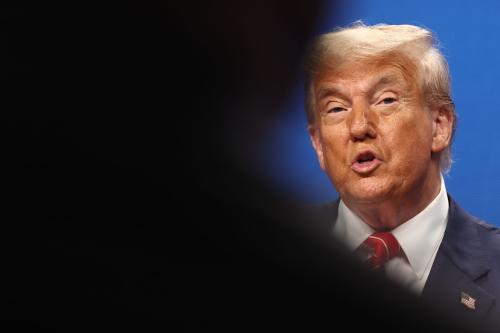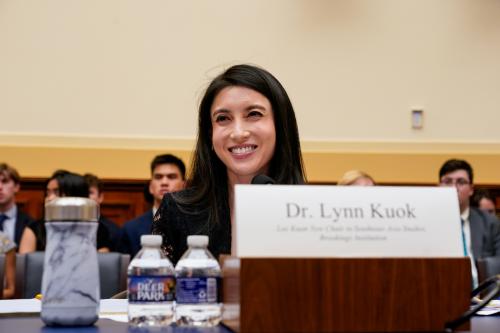2012
The United States and the Republic of Korea have maintained a bilateral military alliance since 1953 and during that time, the ROK, or South Korea, has progressed from a nation ruined by war and poverty to a vibrant democracy, world leading economy, innovator, aid donor, and cultural powerhouse. The value of the alliance has at times been called into question on both sides, and has often served as a battleground in domestic politics. Yet the U.S.-ROK alliance is as strong as it has ever been, and as of the summer of 2012 some observers describe the state of the relationship as the best in its history.
Despite the importance, value, and capacity of the U.S.-ROK relationship, it tends to be overshadowed in the United States by other bilateral and multilateral arrangements. North Korea continues to pose a serious challenge to stability in Northeast Asia, but the U.S.-ROK relationship is capable of – and may be strengthened by – collaboration in addressing challenges beyond the Korean Peninsula. The ROK’s global power and influence are growing at precisely the time that the United States is seeking partners in confronting a growing number of challenges around the world.
On June 8-11, the Brookings Institution, East Asia Institute, and Korea Foundation hosted “The Fourth Korea Foundation Global Seminar: Globalizing United States-Republic of Korea Relations” in Warrenton, Virginia. The conference brought together leading experts and practitioners to provide an advanced introduction of the U.S.-ROK relationship to rising leaders in U.S.-Asia relations, and to identify new challenges and areas in which the two sides can collaborate and begin to develop proposals for propelling the relationship forward in the twenty-first century.
AGENDA
Friday, June 8
Welcome Remarks
- Woosang Kim – President, The Korea Foundation
- Sook-Jong Lee – President, The East Asia Institute
- Richard Bush – Senior Fellow and Director, Center for Northeast Asian Policy Studies, The Brookings Institution
Saturday, June 9
Session 1: The Korean Peninsula and the United States
Panelists
- Richard Bush, The Brookings Institution
“North Korea” - General Burwell Bell (Ret.), U.S. Forces Korea
“The Evolution of Combined Forces Command” - Young-Sun Ha, Seoul National University
“A Co-evolution Strategy for North Korea’s Post Military-First Policy” - Frank Jannuzi, Amnesty International USA
“Human Rights in ROK-U.S. Relations”
Session 2:
Trade and Economic Futures
Panelists
- Eui-Soon Shin, Yonsei University
“Sustainable Development” - Choong-Yong Ahn, Chung-Ang University
“Toward an Open East Asian Regional Integration” - Tami Overby, U.S. Chamber of Commerce
“The Korea-U.S. Economic Relationship”
Working Group Session 1
- Korean Peninsula Working Group
- Regional and Global Working Group
Sunday, June 10
Session 3: Global and Regional Trends in the Next 30 Years
Panelists
- Lt. General Wallace Gregson (Ret.), Center for National Interest
“The Future of the U.S. Alliance System” - Young-Sun Ha, Seoul National University
“The U.S.-China Era and Korea’s Complex Network Strategy”
Working Group Sessions 2 & 3
- Korean Peninsula Working Group
- Regional and Global Working Group
Session 4: New Challenges and Responsibilities
Panelist
- Eui-Soon Shin, Yonsei University
“Climate Change”
Related Content
2012
Paul H. Nitze School of Advanced International Studies, The Johns Hopkins University, Washington DC
Tuesday, 2:00 pm - 3:30 pm EDT
2012
The Brookings Institution, Washington DC
Tuesday, 1:30 pm - 4:30 pm EST


